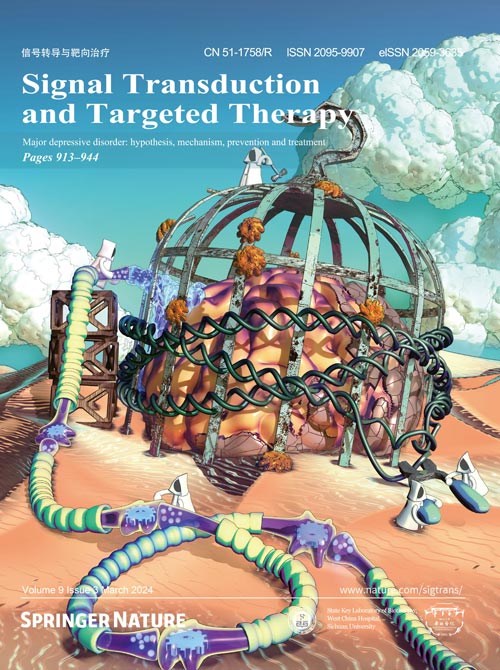Volume 9 Issue 3, Mar 2024:
Article
Nutrient restriction-activated Fra-2 promotes tumor progression via IGF1R in miR-15a downmodulated pancreatic ductal adenocarcinoma
Gian Luca Rampioni Vinciguerra
ORCID: orcid.org/0000-0003-0739-1668,Marina Capece
ORCID: orcid.org/0000-0002-7624-8059,Luca Reggiani Bonetti,Giovanni Nigita,Federica Calore,Sydney Rentsch,Paolo Magistri,Roberto Ballarin,Fabrizio Di Benedetto,Rosario Distefano
ORCID: orcid.org/0000-0001-7241-7751,Roberto Cirombella,Andrea Vecchione
ORCID: orcid.org/0000-0002-5497-6856,Barbara Belletti,Gustavo Baldassarre,Francesca Lovat &…Carlo M. Croce
Pancreatic ductal adenocarcinoma (PDAC) is a lethal disease, characterized by an intense desmoplastic reaction that compresses blood vessels and limits nutrient supplies. PDAC aggressiveness largely relies on its extraordinary capability to thrive and progress in a challenging tumor microenvironment. Dysregulation of the onco-suppressor miR-15a has been extensively documented in PDAC. Here, we identified the transcription factor Fos-related antigen-2 (Fra-2) as a miR-15a target mediating the adaptive mechanism of PDAC to nutrient deprivation. We report that the IGF1 signaling pathway was enhanced in nutrient deprived PDAC cells and that Fra-2 and IGF1R were significantly overexpressed in miR-15a downmodulated PDAC patients. Mechanistically, we discovered that miR-15a repressed IGF1R expression via Fra-2 targeting. In miR-15a-low context, IGF1R hyperactivated mTOR, modulated the autophagic flux and sustained PDAC growth in nutrient deprivation. In a genetic mouse model, Mir15aKO PDAC showed Fra-2 and Igf1r upregulation and mTOR activation in response to diet restriction. Consistently, nutrient restriction improved the efficacy of IGF1R inhibition in a Fra-2 dependent manner. Overall, our results point to a crucial role of Fra-2 in the cellular stress response due to nutrient restriction typical of pancreatic cancer and support IGF1R as a promising and vulnerable target in miR-15a downmodulated PDAC.
